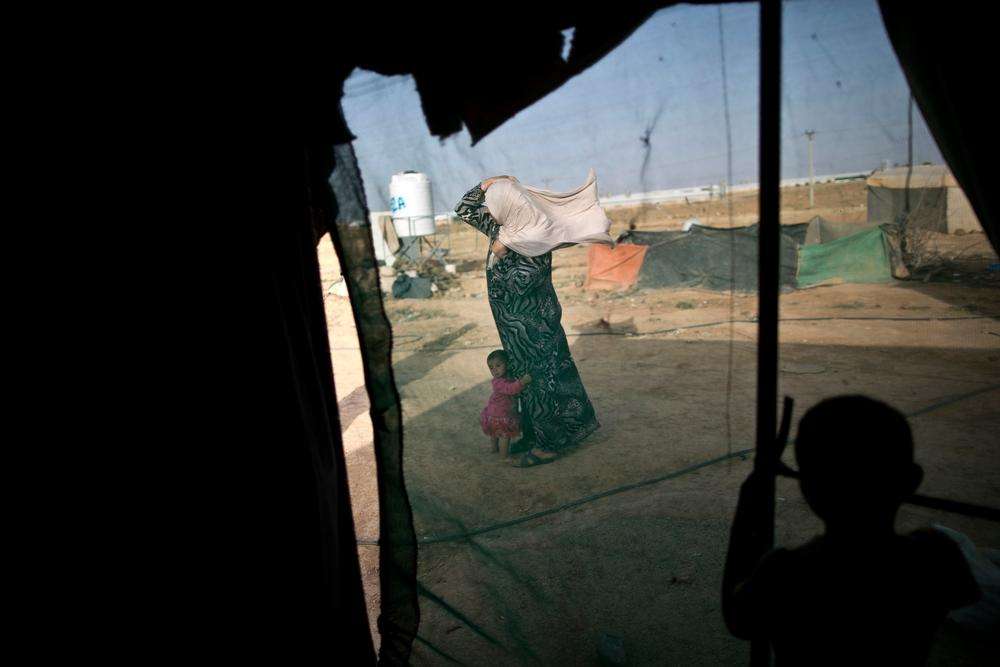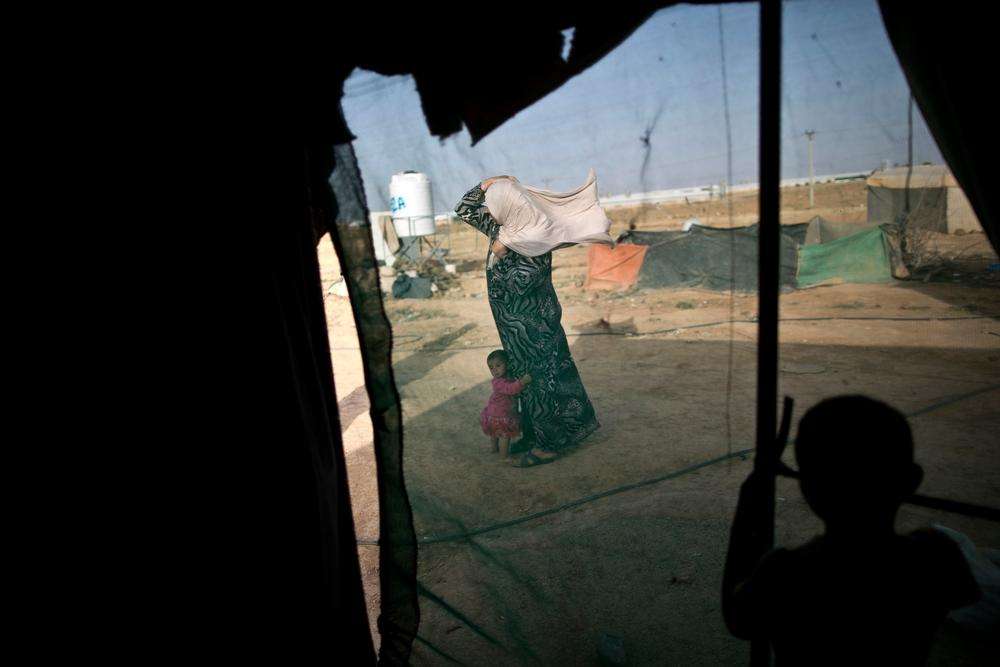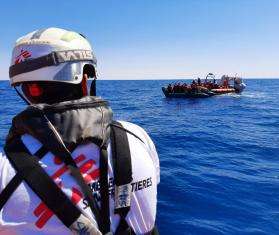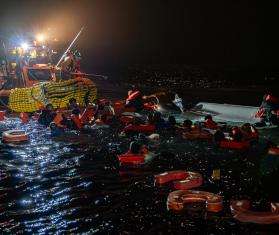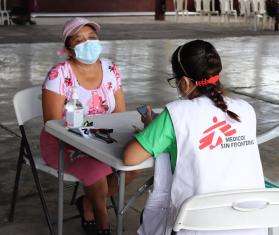About 60,000 people trying to flee Syria are trapped without aid in extremely harsh conditions near Jordan’s northeastern border in a large informal camp area known as the "berm" [editor's note: the number has since risen to 75,000]. Here, they describe the situation in their own words.
Read the New York Times Op-Ed: Save the Refugees on the Berm
"Every day in Syria a new plane dropped a bomb on us. We ran away [to another part of Syria]; then bombs also fell there, so we ran here. This is a very bad climate—there is a shortage of water. Sometimes they don't bring the water and the taste is bad. It’s not a life. All the children in the camp have diarrhea from the water or the food. The biggest quantity of food is stolen by a tribe. When there are food shortages sometimes we don't get any for one week. There are also huge mice and scorpions. We asked the agencies for mice traps but we didn't get any; the mice destroyed everything and my children have mouse bites. I can’t even buy clothes for my children."
—50-year-old-woman, May 27 2016
"The conditions here are very bad—we cannot go back to Dara because there is rape, sexual harassment, and kidnapping. The groups at the berm—they are fighting. There are gun sounds at night, too many people have guns."
—38-year-old woman, May 27 2016
"I'm very afraid for my daughter. I don't let my daughter come and get the food [WFP distribution] because I'm afraid the men will hit her. My family and another family have many problems. I have heart disease and asthma and I am running out of meds. There is a man who is harassing us, asking for money. He has some men with him and they terrorize people."
—40-year-old woman, May 30 2016
"Food is not hygienic because of the mice. The tents let the dust in. At the beginning it was better because there was not a lot of people and water and food were available, now there are too many people. When I drink the water I have a pain in my stomach and then diarrhea. It tastes like chlorine. We would like to go somewhere but we're afraid; we don't want to be deported back to Dara, we don't have money to get out again."
—30-year-old woman, June 2 2016
"One of my brothers in Syria died from the bombs, and my father died in Syria because he was sick and couldn’t get medical care. Now my mother has a brain hemorrhage—she cannot walk and she lost one kidney in a car accident. She cannot drink the water here, she needs sterile water."
—26-year-old woman, June 2 2016
Read the Press Release: 60,000 Trapped Along Syria/Jordan Border Desperately Need Aid, Protection
